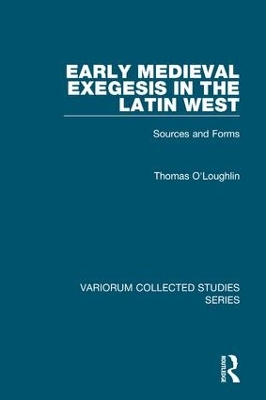Variorum Collected Studies
1 total work
Early Medieval Exegesis in the Latin West
by Professor Thomas O'Loughlin
Published 28 September 2013
One of the significant developments in scholarship in the latter half of the twentieth century was the awareness among historians of ideas, historians of theology, and medievalists of the importance of the Christian scriptures in the Latin Middle Ages. In contrast to an earlier generation of scholars who considered the medieval period as a 'Bible-free zone', recent investigations have shown the central role of scripture in literature, art, law, liturgy, and formal religious education. Indeed, to understand the Latin Middle Ages one must understand the value they placed upon the Bible, how they related to it, and how they studied it. However, despite the new emphasis on the Bible's role and the place of exegesis in medieval thought, our detailed understanding is all too meagre - and generalisations, often imagined as valid for a period of close to a millennium, abound. How the Scriptures were used in one pursuit (formal theology for example relied heavily on 'allegory') was often very different to the way they were used in another (e.g. in history writing was interested in literal meanings), and exegesis differed over time and with cultures. Similarly, while most medieval writers were agreed that there were several 'senses' within the text, the number and nature varied greatly as did the strategies for accessing those meanings. This collection of fifteen articles, concentrating on the early Latin middle ages, explores this variety and highlights just how patchy has been our understanding of medieval exegesis. We now may be aware of the importance of the Bible, but the task of studying that phenomenon is in its infancy.
